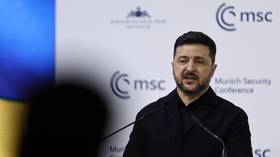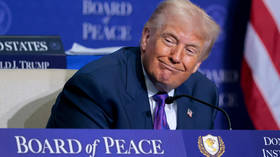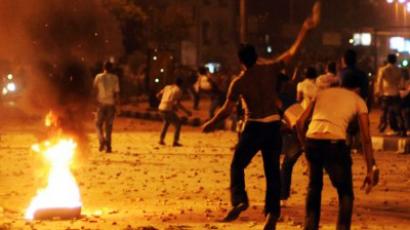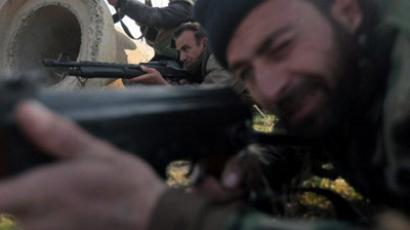Jordan bursts into protests over fuel price hike (VIDEO)
The announcement of a general fuel price hike brought thousands to the streets in Jordan. Protesters rallied overnight in the capital and at least 12 other cities, blaming King Abdullah II and calling for a general strike.
At least once police division reportedly used teargas.Jordanian authorities have had to increase security measures throughout the country and particularly in the capital, Amman, where about 2,000 protesters gathered in a spontaneous demonstration on the main square, where the Ministry of Interior and other government buildings stand.The demonstrators chanted anti-government slogans, including “Revolution, it is a popular revolution,” reports Associated Press.
They shouted “Freedom is from God, in spite of you, Abdullah”, which is actually a violation of law, as public criticism of the King in Jordan is punishable by up to three years behind bars.Police made no attempts to disperse the crowds and only stood guard of the government buildings.
In some towns protests turned violent. In the town of Mazar protesters reportedly burnt down the court building, stealing service documents, Associated Press informs. In the southern town of Maan, known as a safe haven for Muslim militants, around 500 protesters blocked streets with burning tires and clashed with riot police, which used teargas.In the country’s north, in the suburbs of the city of Irbid, protesters reportedly burnt down a gas station.The protests united parties previously never observed together, like Muslim activists and Marxists, nationalists and communists. Most of the government opponents are young members of the opposition.Hundreds of protesters were also registered in country’s south, inhabited by tribal Bedouins, traditional supporters of the king. Bedouins called to ouster the prime minister who, they believe, is the author of the price hike initiative and even criticized the king.
Gas pipeline attacks on Sinai caused a record budget deficit in Jordan
Jordan traditionally buys natural gas from Egypt, but the pipeline that delivers gas from Egypt to Israel and then to Jordan has been blown up over a dozen times in the desert on the Sinai Peninsula in recent months. Amman has been forced to compensate for the gas delivery disruptions, using more expensive oil fuel for electricity generation, which amounted to US$7 million a day, a huge sum for the small Middle-Eastern country. Overall, the gas pipeline attacks blew a $3 billion deficit hole in the national budget of Jordan."The financial situation in the country has been greatly affected by the Arab Spring. The economic situation is very precarious," Jordan’s PM Abdullah Ensourn said.Ensourn said the country needs to offset $15 billion so price hike for natural gas and other fuels is inevitable. He also said that gasoline price will go up 14 per cent, whereas diesel and kerosene for households will get more expensive by 33 per cent. But the worst situation is with natural gas, used by impecunious Jordanians for cooking and heating – it rises a whopping 54 per cent.Another immediate effect of the shocking announcement were gas stations jammed with cars throughout Jordan as citizens tried to fuel up to the hilt before the prices rise came into effect at midnight on Tuesday.Last month the Islamic Action Front, the Muslim Brotherhood's political wing in Jordan, organized about 10,000 people to rally in Amman demanding a more democratic parliament with a broader political representation in it.King Abdullah II had to call early elections in early 2013, on January 23. The multifaceted opposition of Jordan is considering a boycott of the poll.














